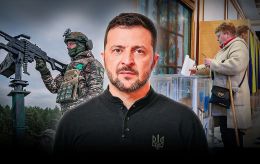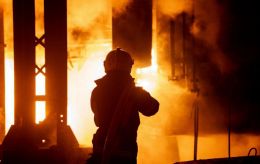Election without choice: Putin's strategy and post-election forecasts
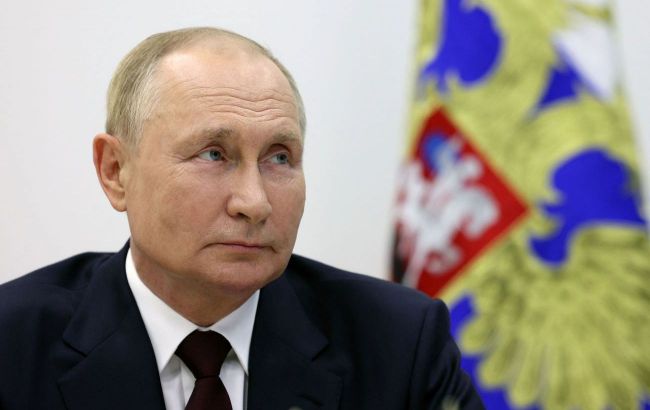 Vladimir Putin is likely to win the "election" in Russia with a result of around 80% (Photo: Getty Images)
Vladimir Putin is likely to win the "election" in Russia with a result of around 80% (Photo: Getty Images)
This week, the so-called election will take place in Russia, solidifying the power of dictator Vladimir Putin until 2030. At least because those who could pose a real challenge to him have either been killed, imprisoned or are hiding abroad. RBC-Ukraine discusses the voting procedure, opponents, the legitimacy of Putin's new term, and the consequences, including those for our country.
The following sources were used in preparing the article: material from BBC, Bloomberg, The Wall Street Journal, Meduza, a column by Russian opposition figure Vladimir Kara-Murza for The Washington Post, a report from the Russian voter rights movement Golos, comments from expert Oleksandr Musiienko, and political scientist Volodymyr Fesenko.
Content
- How Putin's election will play out
- What's known about Putin's election rivals and why there's no opposition
- Does the global community recognize the elections?
- Can doubts be raised about Putin's legitimacy
- New faces, war, and mobilization: What comes after the elections
How Putin's election will play out
The main voting will take place from Friday to Sunday, March 15-17. For the first time in the presidential elections in Russia, polling stations will be open for three days instead of one. This mechanism was tested during the referendum on constitutional reforms in 2020, which reset Putin's terms and allowed him to hold office until 2036.
These are also the first presidential elections to use remote electronic voting (REV). The option is available in nearly 30 Russian regions and in the occupied Crimea. With its help, the Kremlin aims for a record turnout and, as BBC writes, uses administrative resources to push not only budget workers but also employees of state corporations to participate in online voting.
Voting will also take place in the occupied territories of four Ukrainian regions – Donetsk, Luhansk, Zaporizhzhia, and Kherson – although Russian forces do not fully control them. The early voting process there started at the end of February and is ongoing.
More on this in the article "Elections at gunpoint: How Russians force Ukrainians in occupied territories to vote for Putin."
For Russians living in settlements without polling stations, mobile ballot boxes will be brought in. Any Russian citizen over 18 years old who is not serving a prison sentence in a criminal case has the right to vote. According to the Central Election Commission, there are 112.3 million voters in the territory of the Russian Federation and the controlled parts of Ukraine, with nearly 2 million more residing abroad. As Meduza found out, Putin's administration wants to see a high turnout at 70-80%. According to the latest data from the Russian Public Opinion Research Center (RPORC), the projected figure is 71%.
Tomorrow, March 14, the pre-election campaigning on television channels, in print, and online publications will end. After three days of voting, the results will begin to be summed up. It is expected that the results will be announced no later than March 28.
 Putin's election symbolism (Photo by Getty Images)
Putin's election symbolism (Photo by Getty Images)
The campaign is already being called the most meaningless and information-scarce. According to a report by the Golos movement, compared to 2018, federal and regional media pay little attention to election stories. Independent journalists in private conversations admit that "election is not an election in reality," "there is nothing to cover, analyzing the chances of registered candidates is absurd."
According to Golos, the pre-election debates only simulated discussion. Putin refused to participate, other candidates rarely took part, and in some regions, their representatives were not sent to the debates at all. At the same time, topics were chosen to be as non-conflictive as possible, and important issues were not raised at all.
What's known about Putin's election rivals and why there's no opposition
Putin has ruled Russia for over two decades, and all polls show that he enjoys overwhelming support and will easily secure another presidential term. With such a scenario, the 71-year-old dictator will remain in power until at least 2030.
Under his rule, Russia launched a full-scale invasion of Ukraine, which further alienated Moscow from the West. Additionally, Russia adopted a policy of promoting traditional values, and cracked down on the opposition and independent media. Interestingly, even before the nomination, Kremlin spokesman Dmitry Peskov said that Putin "has no and cannot have competitors."
"My personal opinion, although I hardly have the right to express it, but breaking the rules, I can say that he has no competitors now and cannot have any in the Russian Federation," he said in October.
Putin dominates the news on Russian TV. According to Golos, the number of mentions of him on television is off the charts – about 10 times more than mentions of other candidates. Apart from him, there will be three other candidates on the ballot.
Vladislav Davankov, 40, from the New People party, is a relatively new figure for voters. Some experts and opposition politicians see him as an alternative candidate for the anti-war electorate after Daria Duncova and Boris Nadezhdin were not allowed to run.
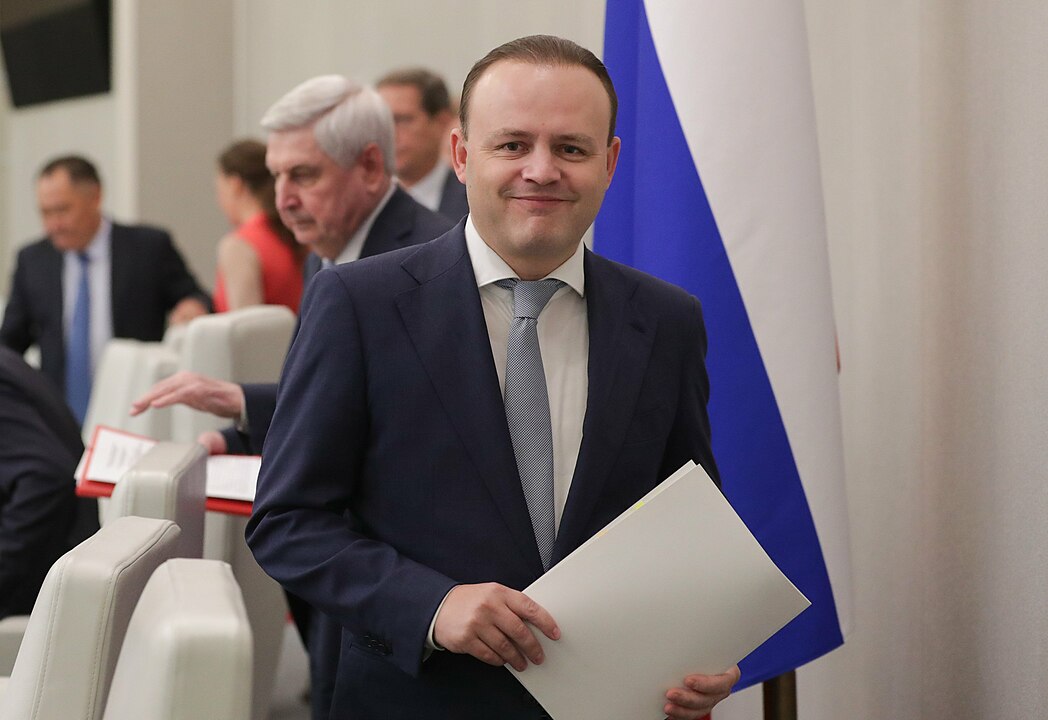
The young candidate with a nominally peaceful agenda, Vladislav Davankov (Photo from duma.gov.ru)
A former businessman and deputy chairman of the State Duma during the presidential campaign claimed to advocate for peace and negotiations with Ukraine, press freedom, and normalization of relations with the West. His party was the only one initially opposed to recognizing the independence of the Donetsk and Luhansk republics, but eventually voted in favor. Due to this, Davankov is under Western sanctions. According to PROPK polls, he could be supported by 6% of voters.
The second competitor to Putin with a rating of 6% is 75-year-old Communist Party member Nikolai Kharitonov. He has been a State Duma deputy since 1993 and finished second in the 2004 presidential elections with about 13% of the vote. In his program, he advocates for raising pensions and lowering the retirement age, relying on the elderly electorate, which traditionally supports the Communist Party of the Russian Federation (CPRF). He is on the sanctions lists and during the election campaign refused to criticize Putin.
"What will I criticize him for? He is responsible for his cycle of work. Why should I criticize him? Firstly, I am not the kind of person to criticize colleagues. Each person is responsible for their work," he said.
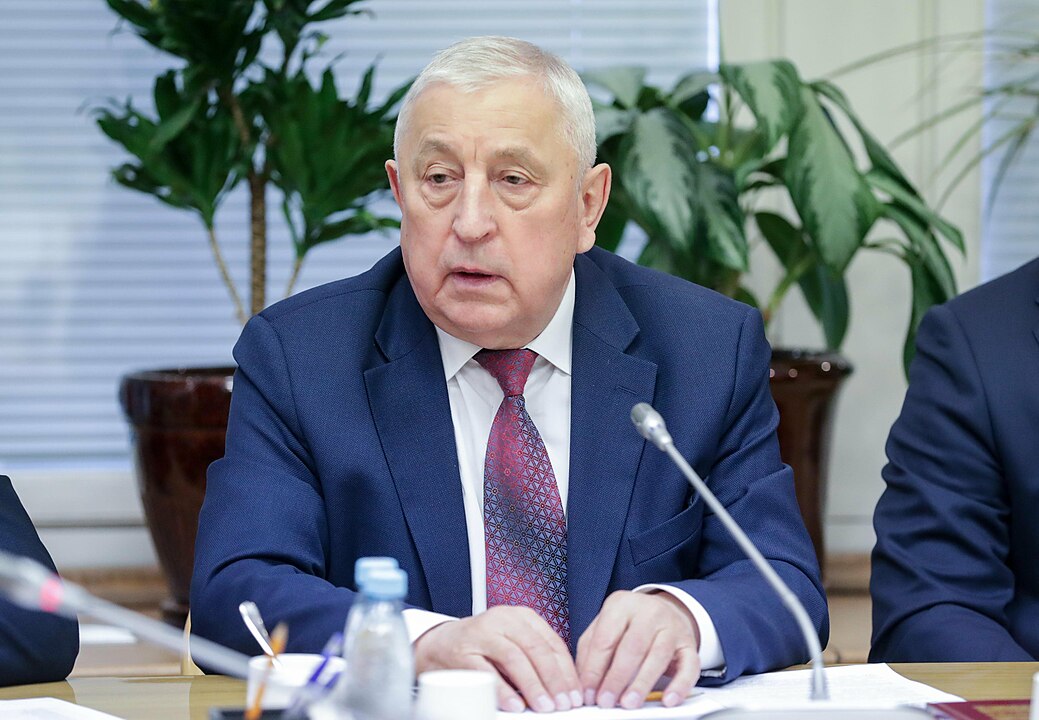 Nikolai Kharitonov runs the Communist Party of the Russian Federation (Photo: duma.gov.ru)
Nikolai Kharitonov runs the Communist Party of the Russian Federation (Photo: duma.gov.ru)
The third opponent is the 56-year-old Liberal Democratic Party of Russia (LDPR) leader and State Duma deputy since 2000, Leonid Slutsky. He is on Western sanctions lists and has been involved in loud scandals. In 2018, he was accused of sexual harassment of journalists, and some media outlets called him "the Russian Harvey Weinstein."
Slutsky, who was a member of the Russian delegation at the negotiations with Ukraine in the spring of 2022, is known for his hawkish stance on the war. According to him, the main goal of his program is the "final and quick victory in the war." Additionally, he advocates for tax breaks for the poor, freezing food prices, and providing social housing. His rating is 5%.
According to Golos, all three candidates only imitated a campaign because Davankov, Slutsky, and Kharitonov tried not to attract "unnecessary attention" to themselves. The most significant events of the presidential campaign are associated with politicians who were not registered or allowed to run. In particular, this concerns the death of opposition leader Alexei Navalny in prison and the scandal with Boris Nadezhdin, for whom "invalid signatures" were submitted.
 Leonid Slutsky is trying to continue Zhirinovsky's legacy, but it's not going well (Photo: duma.gov.ru)
Leonid Slutsky is trying to continue Zhirinovsky's legacy, but it's not going well (Photo: duma.gov.ru)
The reluctance to admit even conditional opposition is explained by the fact that these are not elections but a pure imitation, believes the head of the Center for Military Legal Researches Olaksandr Musiienko.
"Putin needs controlled systemic people who will only create the appearance of an electoral process. They were allowed simply so that there would be someone else on the ballot besides Putin. He is afraid that criticism may sound, that someone might vote for an oppositionist, to the extent that he excludes any alternative. And this is a sign that, despite the support, he is not confident in his positions," he tells RBC-Ukraine.
Does the global community recognize the elections?
During the 2018 elections, the OSCE observer mission stated that they were held without real competition and that the voting was "overshadowed by pressure on critics." At that time, the votes of Crimean residents were taken into account, which raised questions about the legitimacy of the campaign. In March 2024, this issue will be even more acute as the elections are taking place in the occupied parts of Donetsk, Luhansk, Zaporizhzhia, and Kherson regions.
In a December interview with the Associated Press, Ukrainian President Volodymyr Zelenskyy spoke about this. According to him, he would like the Western world not to recognize the upcoming elections in Russia at all.
"And now, if Putin goes to the elections, and there is probably a high probability of that and a very high chance that he will win. He is fighting with only himself, after all. Therefore, the 'game' here will be on the side of the Western leaders of the civilized world, whether to recognize it or not. By the way, there may be a turning point - the illegitimacy of President Putin," Zelenskyy noted.
According to political analyst Volodymyr Fesenko, elections in the occupied territories will not be recognized not only by the West but also by other countries that do not recognize the illegal annexation of Ukrainian lands.
"Just for countries like China or Iran, elections have no meaning at all, and they don't make any statements. And in the West, there is already a tradition; they clearly state that elections in the occupied territories are not recognized," he tells RBC-Ukraine.
.jpg) Election in the occupied territories of Ukraine is not recognized not only in the West (Photo: Getty Images)
Election in the occupied territories of Ukraine is not recognized not only in the West (Photo: Getty Images)
As for the results of the voting in Russia itself, the situation here is more complex and ambiguous.
"My forecast is simple: there will be no statements either in terms of recognition or non-recognition. Why? Because one needs to preserve the space for negotiations, as it concerns a country with nuclear weapons, and we cannot afford to take risks. One can speak about the absence of democratic procedures, but nobody doubts who, for example, is the leader of North Korea. The West will not start burning bridges. It will avoid statements of non-recognition of the election because it would mean not recognizing Putin as the head of state. This tactic is known; the West has used it before, and it is very convenient and solves all problems," Fesenko adds.
Oleksandr Musiienko suggests that the first to congratulate Putin will be Alexander Lukashenko and Syrian dictator Bashar al-Assad.
"As for China, let's see what position it takes; it's hard to say now. I wouldn't exclude that Hungarian Prime Minister Viktor Orban might congratulate, although he will condemn the voting in the occupation. And as for the favorite of the US Republican Party, Donald Trump, I don't think he will send greetings," the expert emphasizes.
Can doubts be raised about Putin's legitimacy?
Russian opposition figure Vladimir Kara-Murza, who is serving a 25-year term for "treason and slander against the Russian army," explained in a column for The Washington Post why Putin's next term will be illegitimate and called on the West not to consider him a legitimate president. Judging from his words, there are enough reasons for this even without voting in the occupied territories of Ukraine.
Firstly, for his own benefit, Putin went further than Lukashenko did in 2020. The Belarusian dictator allowed opposition candidate Sviatlana Tsikhanouskaya to participate in the elections, but mass falsifications and the crackdown on protests led Western countries to not recognize his re-election.
"Vladimir Putin learned his neighbor’s lesson. His strongest opponents have been eliminated — not figuratively but literally: Boris Nemtsov was murdered in February 2015, Alexei Navalny in February 2024. But even cautious opposition was assessed by the Kremlin as too risky. When Boris Nadezhdin, a lawyer and a former member of parliament who had criticized the war in Ukraine, decided to run for president, his campaign got an instantaneous liftoff: long lines of (mostly young) people formed in cities and towns across Russia to sign petitions for his nomination; his campaign received tens of millions of rubles in individual donations; and his support in the polls shot up into double digits. Not surprisingly, the Central Election Commission barred Nadezhdin from the ballot, using the usual technical pretexts," Kara-Murza believes.
 Western countries are unlikely to declare Putin's illegitimacy (Photo: Getty Images)
Western countries are unlikely to declare Putin's illegitimacy (Photo: Getty Images)
Secondly, elections in Russia are made illegitimate by media censorship and massive repression. Thirdly, Putin's participation. The 1993 Constitution limited the terms to two consecutive terms of 4 years each. Therefore, from 2008 to 2012, he ruled as prime minister. The next two consecutive terms, extended to 6 years, end on May 7, 2024. In 2020, he reset the terms, but the hasty adoption of amendments repeatedly violated the law. This conclusion was confirmed by the Higher Commission on Constitutional Law of Europe, and the European Parliament called the constitutional changes illegal.
"The only logical, and the only honest, political response to this from the world’s democracies would be to deny recognition of Vladimir Putin as the legitimate leader of Russia after May 7 — in the same way they have refused to recognize the legitimacy of, for example, Nicolás Maduro in Venezuela or Lukashenko in Belarus," the opposition leader added.
It is known that in 2021, attempts were made to introduce a resolution to the US Congress on the non-recognition of Putin's legitimacy after the 2024 elections, and in October 2024, the Parliamentary Assembly of the Council of Europe appealed to the world community with a corresponding call and called the Putin regime a dictatorship.
According to Volodymyr Fesenko, theoretically, some countries may doubt Putin's legitimacy. However, it is not worth pretending that the desire is true.
"No matter how we treat him, no matter how much we want the West not to recognize Putin, everyone understands and knows very well what Putin's democracy is worth there. Talks about resetting terms are raised by the Russian opposition. But we need to promote not formal points, but to organize real political resistance in the Russian Federation. Do not play legal disputes that, unfortunately, do not affect anything. A statement by the PACE is good, but how many of them have there been and what have they influenced?" he notes.
